The X-Files: A Feminist’s Analysis of Gender Imbalance
For those who grew up in the 1990s with an interest in the supernatural, The X-Files provided an outlet for curiosity, especially for girls and young women who were just beginning to initiate the third wave of feminism. One character who stands out from the cast is Dr. Dana Scully, who is not only an accomplished forensic scientist but who leads a thriving career in the FBI, two very male-dominated fields of work. It’s easy to say that Scully’s character paved the way for the future portrayal of female characters in STEM roles, and thus she quickly became a feminist icon of her time. But was her independent career tainted by patriarchal hindrance and sexist suppression?

This article will seek to examine the character role of Dana Scully in both the original X-Files and the 2016 reboot in regards to her personhood and agency as a scientist, an FBI agent, and a woman in the workplace during the third wave of feminism. For those who have yet to see episodes of the television show, this article will contain spoilers. WARNING: this article also explores elements of sexual harassment, rape, and violence against women that some readers may find upsetting.
The Dana Scully Paradox
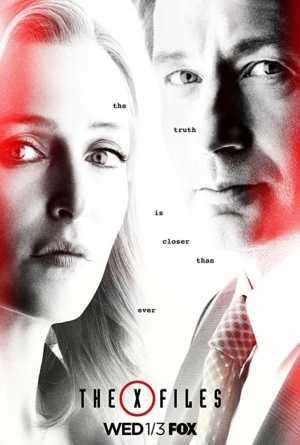
Scully is a well-rounded and fully developed character. She not only has flaws and weaknesses, but she also has personhood and agency; she is not two-dimensional. She is portrayed as strong and capable, oftentimes taking on a more masculine role as the skeptic in comparison to Mulder’s typically feminine role as a believer in the supernatural. 2 All of these elements have effectively made her into a feminist icon of her time, representing what female characters on television should become. However, she is a paradox and a contradiction.
Although her character oftentimes challenges the patriarchy, she is still regularly undermined by sexism and misogyny, both in the workplace and in the field as an FBI agent. Her personhood and agency are affected on a regular basis by how the male characters treat her, including Mulder, and by certain events that will be discussed in detail later on in this article. More often than not she is effectively rendered as a plot device for the show. The following will further outline this paradox, and analyze whether or not Scully’s character should be honored as a feminist icon, or seen more as a victim of patriarchal suppression.
Feminist History and Scully’s Background
Dr. Dana Scully, played by actress Gillian Anderson, is talented and intelligent. She studied hard science at the University of Maryland, earning an undergraduate degree in physics, and eventually completing her residency in forensic medicine. 3 With that being said, her character did all of this during a time in the 1990s when the third wave of feminism was only beginning. It was not as popular for young women to pursue careers in STEM (Science, Technology, Engineering, and Mathematics), and it was even less popular for female characters on television to choose such careers. In fact, viewers were hard pressed to find female characters in powerful scientific or engineering roles, and when they did these roles reinforced gender stereotypes. 4 Furthermore, when considering these gender stereotypes, it’s important to note that 95% of female lead, co-lead, and secondary roles were portrayed as attractive or hypersexualized. 5 Although Anderson is a beautiful actress, Scully was not hypersexualized and may, by today’s standards, even appear rather conservative.
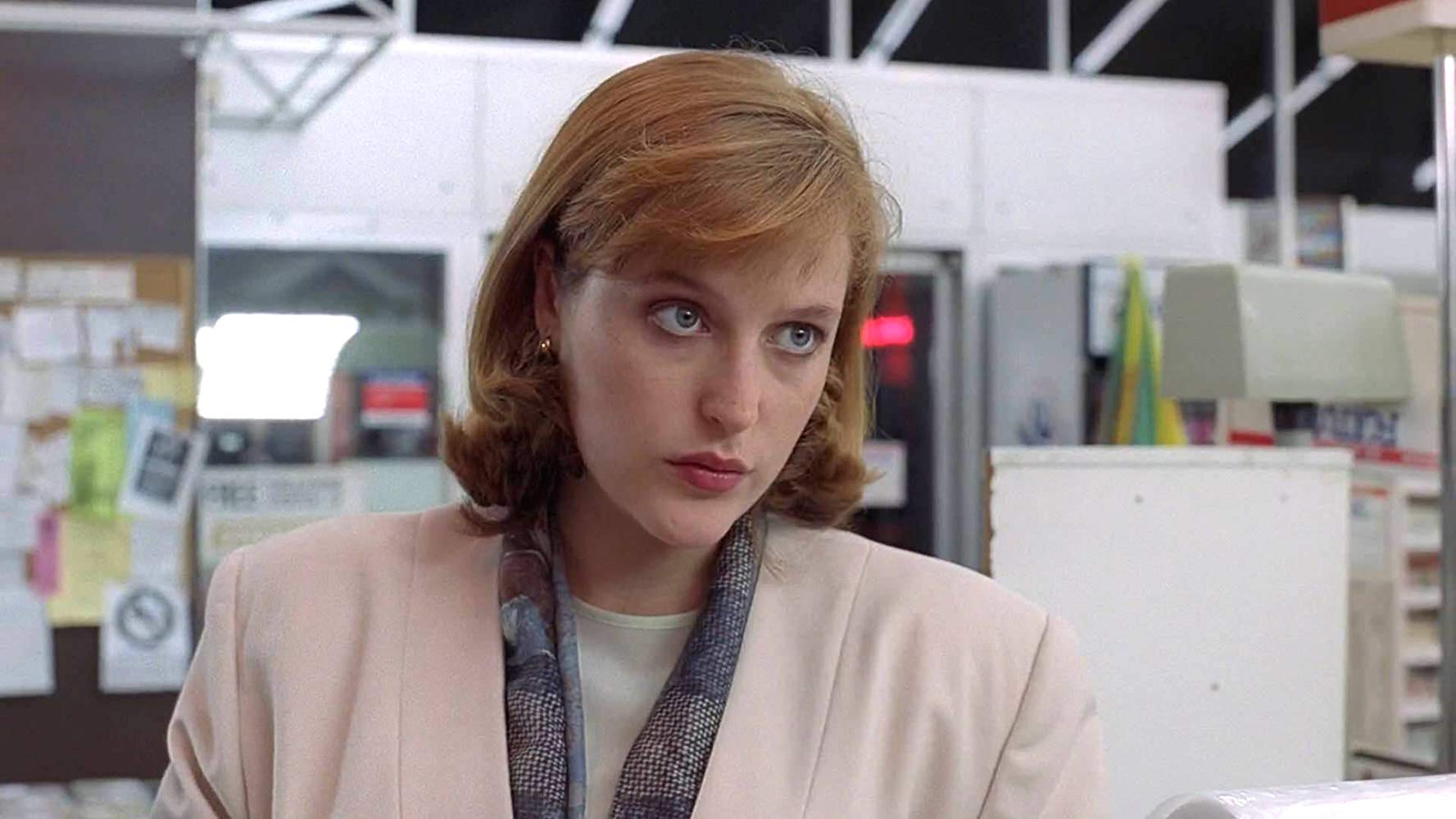
When considering the three waves of feminism it’s pertinent to note that each wave was indicative to the evolution of the feminist movement and were characterized by their own distinct mile markers. According to Dr. Martha Rampton, Professor of History at the Pacific University of Oregon, the first wave began in the late 19th to early 20th Century as a result of “urban industrialism”, as well as “liberal, socialist politics”. 6 Arguably, the most noteworthy accomplishment from the first wave was the passing and ratification of the 19th Amendment, which granted women the right to vote. This, of course, was only after several generations of sufferance, lectures, lobbying, and civil disobedience to prompt a radical change and ultimate victory in the 1920s. 7 This wave also won women rights such as The Married Women’s Property Act and the reform bill, which enfranchised 8.4 million women, and the Sex Discrimination Act of 1975. 8
The second wave, taking place from the 1960s to the 1990s, paved the way for anti-war and civil rights movements, while giving a voice to minorities. 9 Second wave feminists were inspired by Simone de Beauvoir’s The Second Sex to spearhead the societal changes they sought, namely scientific breakthroughs such as the pill and abortions, which empowered women to control their reproductive health and gave them the freedom to establish careers. 10 The second wave forced society to question traditional gender roles in both the household and the workforce, while challenging post-WWII misconceptions of gender role imbalance, namely that women were subordinate to men. 11 Rampton continues then to explain the third wave, the wave Dana Scully found herself in:
The third wave of feminism began in the mid-90’s and was informed by post-colonial and post-modern thinking. In this phase many constructs were destabilized, including the notions of “universal womanhood,” body, gender, sexuality and heteronormativity. 12
The third wave, laying important foundations for the future fourth wave, was dedicated to gender, racial, economic, and social justice, while questioning the “sexual division of labour in the household”, and empowering women to be “high-achieving” and “self-aware”. 13 This wave was spearheaded by female role models such as Rebecca Walker, Jennifer Baumgardner, and Amy Richards 14 and it can be said that Scully’s television character was directly influenced by these women. Claire Elizabeth Knowles makes a valid argument on this subject in her piece featured in the 21st volume, #5 edition of A Journal of Media and Culture:
In the context of the televisual [sic] landscape of the 1990s, this representation of Scully as a character who is every bit as intelligent and as integral to the action of the series as her male partner, was incredibly powerful. It marked Scully as a third-wave feminist character in an era dominated by women who seemed to conform to the kind of problematic post-feminism embodied by Ally McBeal. 15
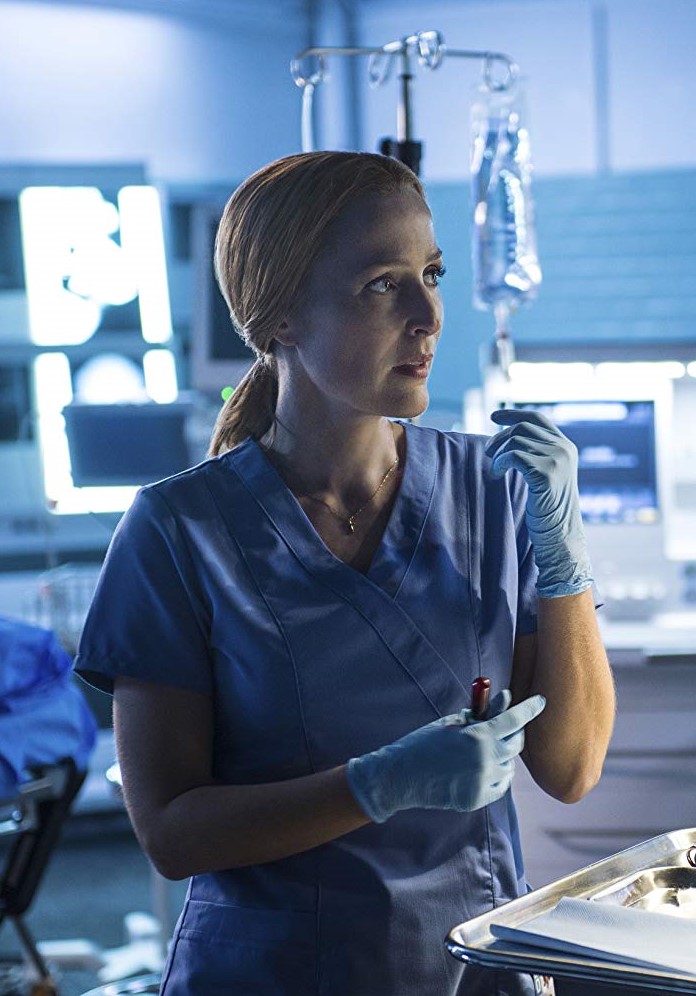
Knowles continues on to say, as a TV show, a lot of female viewers saw themselves reflected in Scully’s character, and it’s arguable whether or not The X-Files had an influence on the evolution of female character portrayal in U.S. television, seeking to thoroughly develop more complex characters, and making these types of characters more mainstream. 16 Upon further examination of Scully’s character, Knowles determines her “longevity as a feminist icon” can be attributed to her survival of this “televisual [sic] landscape” previously occupied by bland representations of professional women. 17
The fourth wave of feminism began in 2012, and focused most on sexual harassment, body shaming, and rape culture. 18 This wave has become less about the political and economic stature, or previous victories, and more about the desire for choice. Jessica Abrahams, writer for Prospect Magazine, says: “The concept of choice—so central to modern feminism—deserves to be critiqued. We need to understand how these choices were shaped.” 19 That being said, the core of the fourth wave has become: a woman’s right is to choose to do what she wants, without being judged or ridiculed, by fighting for “equal share opportunities”. 20 While Dana Scully began her journey in the 1990s, the reboot does place her in this pivotal fourth wave. It is undeniable that as a female television character in both waves Scully, and ultimately Anderson, had to survive hindrances from the patriarchy. For example, in the ’90s, Anderson worked hard to close the wage gap and achieve pay equal to that of co-star Duchovny, but then when she was asked to join the reboot, the same wrongdoing occurred again as the studio offered her half pay compared to his. Anderson said in an interview:
“Especially in this climate of women talking about the reality of [unequal pay] in this business, I think it’s important that it gets heard and voiced. It was shocking to me, given all the work that I had done in the past to get us to be paid fairly. I worked really hard toward that and finally got somewhere with it… And then it happened again! I don’t even know what to say about it.” 21
Not only that, but in 1993 the studio required Anderson to stand behind Duchovny on camera, never side-by-side, until three years later when Anderson finally said enough was enough. 22 As for Scully, in both the third and the fourth wave, her character remains steadfast as she continues to take on sexism with the same spitfire bravado as Anderson did.
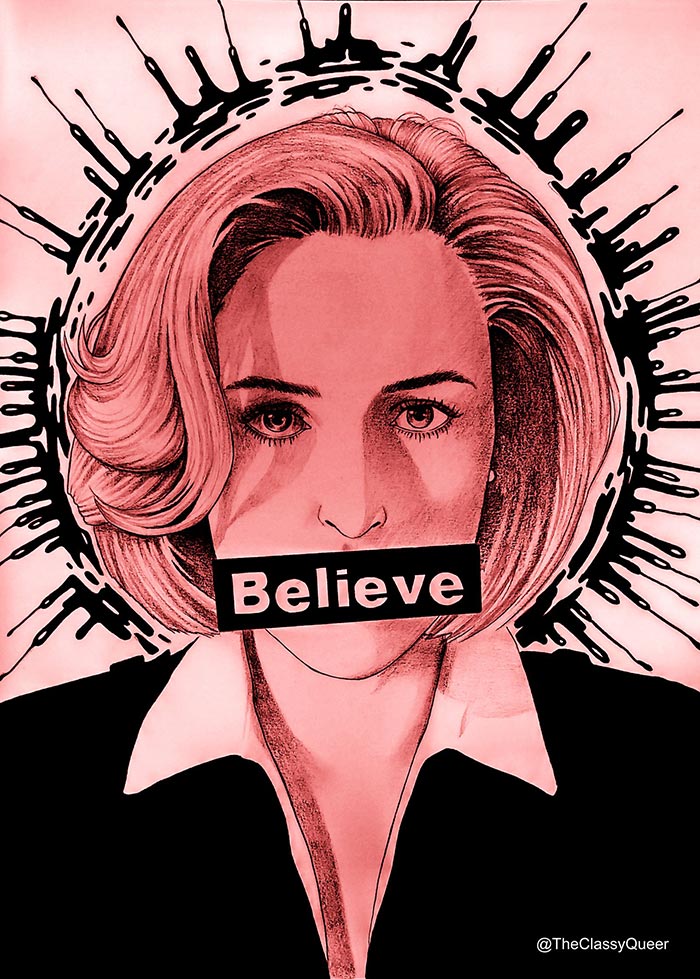
Nevertheless, all of this adoration and praise for Scully’s character does not negate the fact that she still suffers the same stereotypes and sexist suppression many female characters of her time did. Throughout events that will be explored later in this article, viewers watch as Scully clearly falls victim to the effects of rape culture, and is routinely denied her right to choose, even in the newer episodes. The male characters constantly inhibit her growth, influencing events which result in her bodily harm, and the male writers and directors of the show make no apologies for this. This victimization is why her character is such a paradox when it comes to analyzing the true nature of her development.
Personhood and Agency
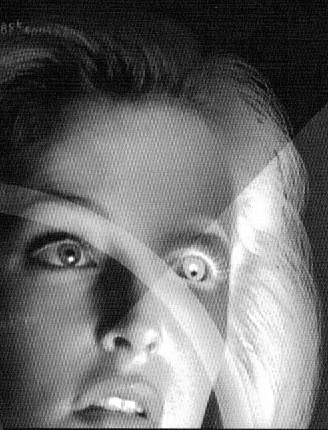
To better examine this paradox, first one must analyze the two factors that come into play the most: Scully’s personhood, and her agency as a woman. According to feminist theory of agency, a woman in a male-dominated environment must “live in ways that reflect their genuine needs and concerns”, while also explaining how she endures “sexist social and political institutions” and actively resists. 23 Therefore, Scully’s agency includes: 1) how she interacts with male characters, and 2) how their sexist oppression inhibits her needs and concerns.
Personhood is more complicated to define. In a general and moral sense, it is a term to define an idea of “self” as a whole, independent entity extending beyond a biological basis, including consciousness. 24 This root of understanding states: a person is a person because of their cultural and moral rights. However, in the context of feminism, personhood goes beyond this belief to say a woman is also a person who deserves the same cultural and moral rights as a man. Author Dianna Anderson does best to summarize this concept: “Declaring that women are people means nothing if you don’t have a context for discussing what personhood, bodily autonomy, consent, ownership, and full humanity mean.” 25 It’s important to remember the first-wave of feminism sought to gain “legal and political status”, or personhood, for women in the public. 26 By gaining this legal status, women would be given the same cultural and moral rights as men, being recognized by law as equal individuals and obtaining true personhood. This makes personhood one of the integral goals of feminism. Scully’s personhood is important to her character as she is not defined by a romantic relationship with a man, she has multiple degrees, and a career separate from male counterparts. She is her own independent entity, with bodily autonomy and ownership. However this personhood is subsequently threatened in the second season of the show.
The Original X-Files (1993-2002)
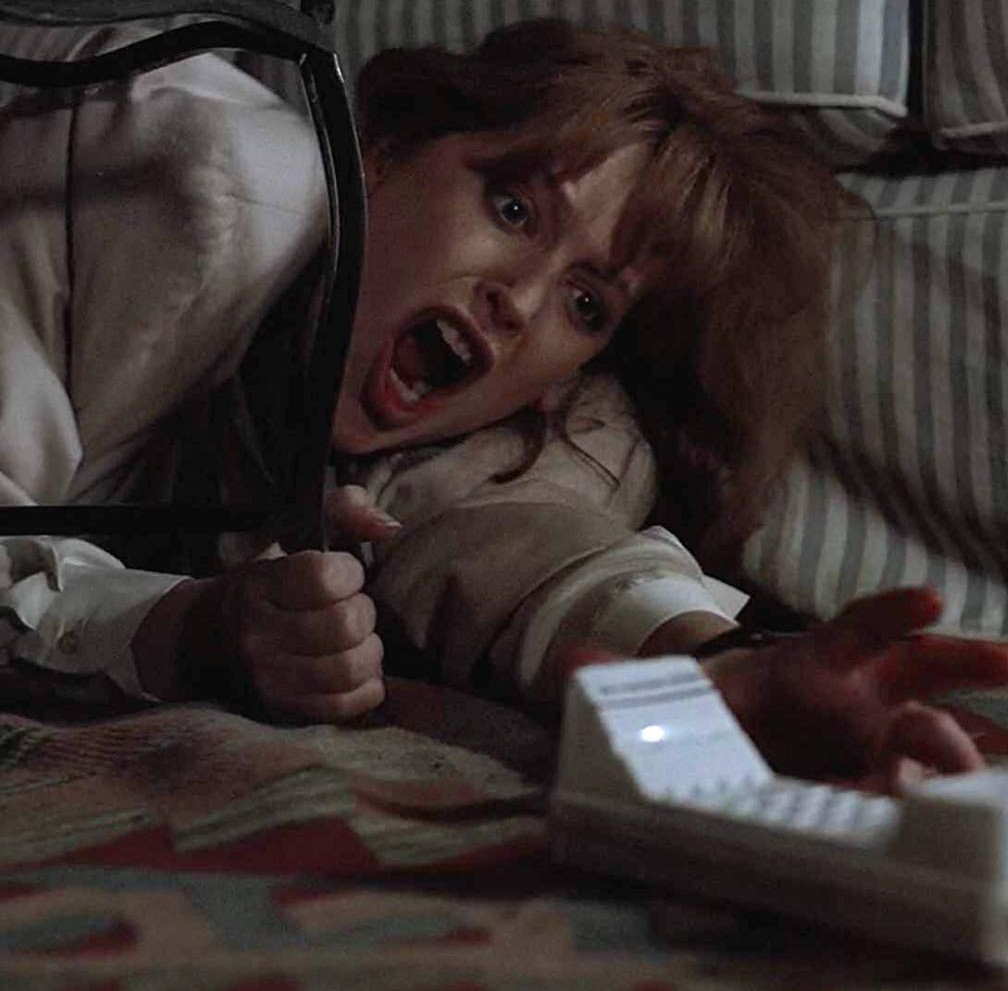
One major plot event that directly inhibits both Scully’s personhood and agency is her implied alien abduction and disappearance. In the 5th episode of season 2, “Duane Barry” (1994), Mulder and Scully are investigating the case of a deranged abductee named Duane Barry who held Mulder hostage in a previous episode. Scully becomes involved when Mulder asks her to examine a metal implant removed from Barry’s body when he was hospitalized. In the end of the episode, Barry finds Scully in her home and kidnaps her while she is leaving a voice message for Mulder. 27
Although she does fight back against her attacker, Barry easily overpowers Scully; binding, gagging, and stuffing her into the trunk of his car. 28 This drastically reduces her screen time in the rest of the episode and ones to follow, and it effectively turns her into a damsel in distress. When interviewed about the decision, writer and director Chris Carter said:
“I remember that the censors were very nervous about us putting Scully in a trunk… you walk this fine line on television trying not to be too graphic and that was one of those images that we fought for and it made the show very scary because you believe that Agent Scully was really in danger in the hands of a psycho…” 29
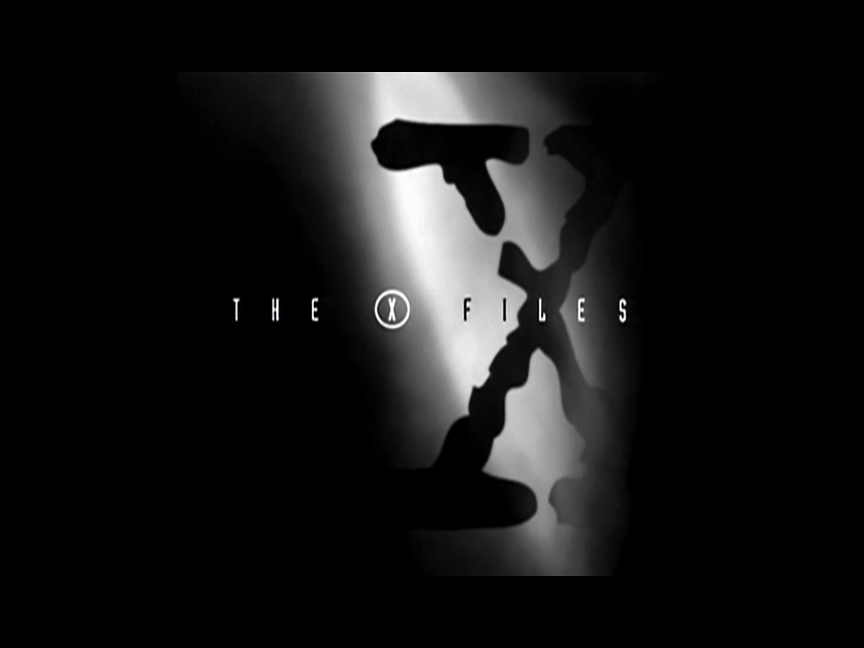
Now part of this decision was attributed to Anderson’s unexpected pregnancy during the end of season 1 and the beginning of season 2. 30 The writers attempted to hide her growing belly with bulky clothing and long trench coats, and utilized unique camera angles while filming. Her maternity leave also contributed to her lack of appearance for the duration of the season two episode titled “3” (1994). 31 Furthermore, her pregnancy was the root inspiration for the abduction as a whole, and shots of her full-term belly were even secretly featured in the episode “Ascension” (1994). 32
However, although Scully’s abduction provided an element of shock to the series, the fact still remains that it was a direct undercut to her character as several male characters benefited from the ordeal. Her disappearance becomes a catalyst for Mulder’s character arc, providing him many opportunities to face emotions he had been avoiding, and to confront fears he needed to confront. The Cigarette Smoking Man, who viewers learn in later seasons had a huge part in this event, was able to further his scientific efforts. The gain which the male characters make from Scully’s suffering is blatantly sexist.
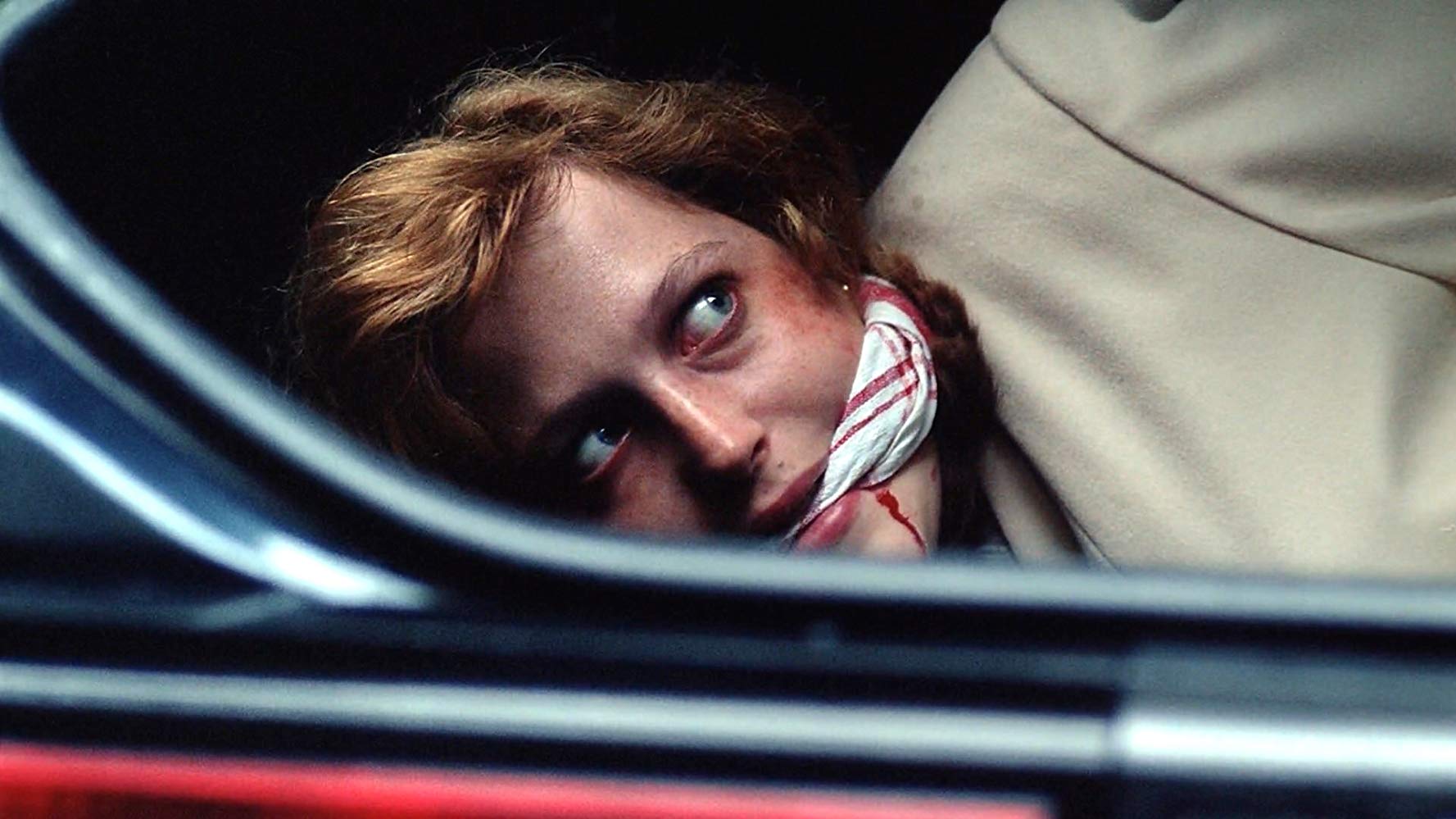
After being stuffed in the trunk, Scully is then reduced to a passive character as Barry takes her up to Skyland Mountain. During her capture, audiences see her as bound and gagged, locked in the trunk of his car, and she does not have any dialogue. When Barry is stopped by police on Route 229 in Rixeyville, Virginia, she does try to alert the cop. But this futile attempt results in the cop’s death, and Barry opening the trunk long enough for her to be captured by the police car dash cam. This gives the viewers, and more importantly Mulder, one last image of her ragged appearance and gagged mouth before she is shut away again. 33 This effectively removes her personhood as she is reduced to merely a device designed to move the plot.
In the following episode, “Ascension” (1994), audiences observe Scully as, in a series of fragmented clips, she navigates a strange and surreal cognitive dissonance caused by her coma. She experiences flashbacks from the abduction, revealing to viewers the horrific experiments done to her including: the surgical implantation of a microchip, the inflation of her stomach through her naval, and other implied surgical “tests” involving drills and the like. 34 While for most of these tests she is depicted as unconscious or sedated, in a series of flashbacks in later episodes she is awake for some of the surgery. This is an invasion of bodily autonomy, and a violation of the fundamentals of personhood as she is experimented on without her consent.

In season 2 episode 8, “One Breath” (1994), Scully miraculously appears in a Washington, D.C. hospital unconscious and in critical condition. In this episode she comes to only to tell Mulder she does not remember anything about her abduction. However, audiences learn she has been grafted with alien DNA in the hopes of breeding something “inhuman”. 35
In fragmented flashbacks over the course of the next nine seasons, Scully slowly remembers bits and pieces of her abduction experience, including that those who operated on her, including Dr. Shiro Zama (season 3 episode 9, part II, “731”, 1995), were men. This effectively proves that everyone directly responsible for Scully’s abduction, impregnation, violation of autonomy, personhood, and agency were male characters. It is also noteworthy that the writers and directors of almost all of the episodes mentioned within this article are men (excluding “Aubrey”, 1995, “All Things”, 2000, and “My Struggle II”, 2016). In fact, as of 2018, merely nine of the 208 episodes were written by female writers, while only two were directed by female directors. 36 Furthermore, Anderson herself is one of these two, having written and directed the 17th episode in season 7 titled “All Things”, which aired in April 9, 2000. 37
Viewers learn in season 4 episode 14, “Momento Mori” (1997), that Scully has inoperable cancer, possibly due to the removal of her implant as result of her abduction. 38 Then, in season 5 episode 7, “Emily” (1997), it’s revealed she mothered a daughter during her abduction. 39 This makes two children Scully has conceived but has not raised due to circumstances beyond her control; the other of course being her son William, renamed Jackson Van De Kamp after she gives him up for adoption in season 9 episode 16, “William” (2002). 40 Finally, as a result of her abduction and experimentation, Scully is pronounced infertile in season 8 episode 13, “Per Manum” (2001), when Mulder reveals her ovum had been stolen from her and stored in a government facility. 41 By stealing her reproductive organs, the writers harm Scully’s personhood even more so, and by withholding this information Mulder is just as guilty of patriarchal suppression as the other male characters.
The X-Files Reboot (2016-2018)
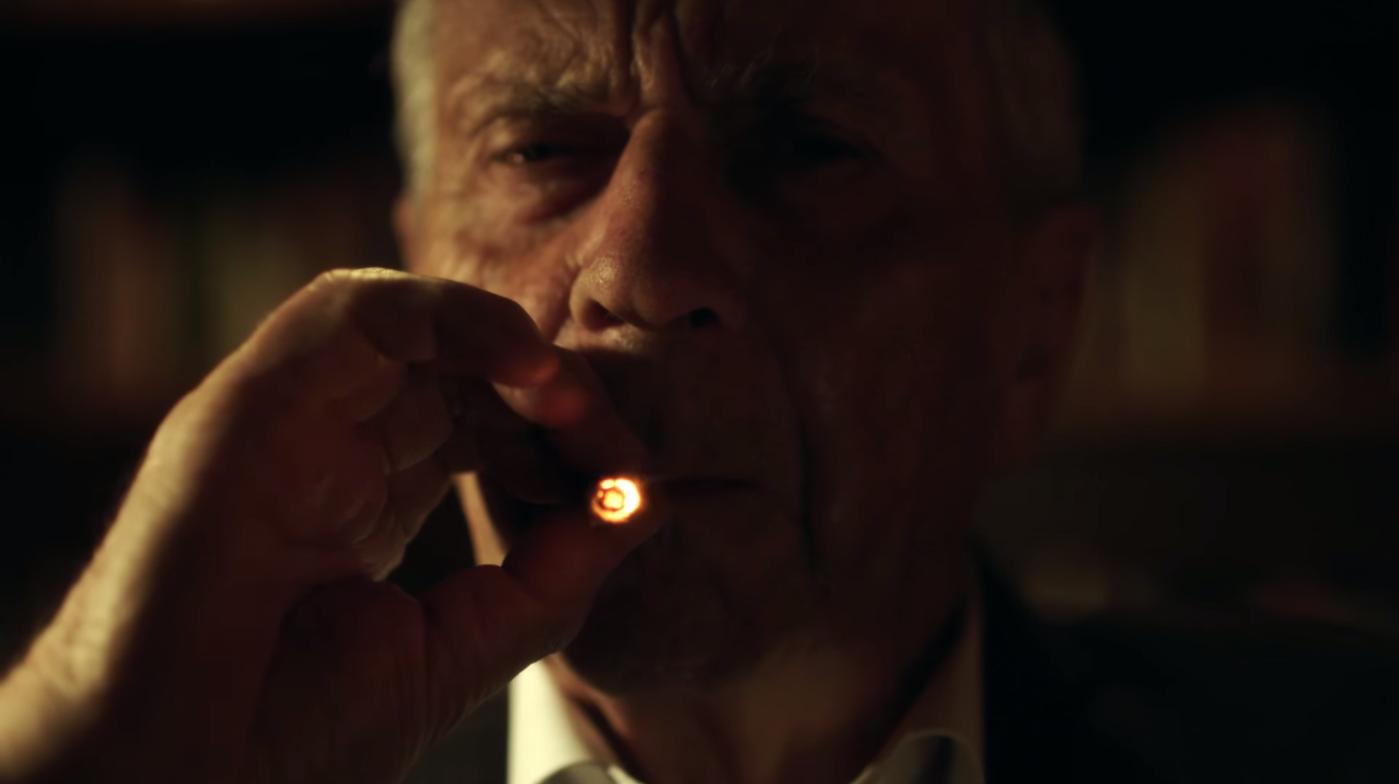
The 2016 series reboot promised many things, including answers to questions fans were left with when the original series ended in 2002. However, despite airing during the fourth wave, the pattern of Scully’s repeated violation and abuse carried over to the new seasons. In 2016, season 10 begins with the episode “My Struggle”, which opens a new loop of events in the timeline after the final two-part episode “The Truth” from season 9. In “My Struggle”, Scully discovers further tampering with her DNA, which begins her quest for the truth. 42 The last episode of season 10, “My Struggle II” (2016), and the first episode of season 11, “My Struggle III” (2018), both continue to explore this tampering and violation. During this time Scully is admitted to the hospital with debilitating seizures as result, presumably, from the alien DNA and her psychic link to her son, William.
It is also revealed in “My Struggle III” that The Cigarette Smoking Man was responsible for “impregnating her with science” 43, or, in other more appropriate words, raping her. This, again, violates her bodily autonomy, agency, and personhood. By calling what The Cigarette Smoking Man did to Scully an “impregnation with science”, Chris Carter, who wrote and directed “My Struggle III”, tried to dodge these accusations of rape, yet this was not a satisfactory response as critics and feminists globally rejected his claims. Jennifer Still, writer for Decider.com, had plenty to say on the matter:
It’s disheartening to realize we haven’t evolved in our ability to allow our strong female characters to exist without having to falsely validate that existence by repeatedly subjecting them to abject horrors in a misguided attempt to prove their mettle by seeing how well they survive. It’s also insulting and downright infuriating to realize how many male writers still believe in this nonsense. Adversity has the ability to make all of us tougher and more resilient, but strength isn’t dependent on how many tragedies you can crumble at the feet of and still get back up from. Having Scully be “impregnated by science” is code for saying Scully was raped, end of story. 44
It’s arguable that her rape, and many other aspects of her abduction experience, helped to progress Scully through a dynamic character arc. Although it is true that, despite these “false validations”, she has prevailed as a strong female character, the evolution of her personality and transformation of her character are evident across the series. It is interesting to see these changes in the seasons from the 1993 original compared to the 2016 reboot, and in conjuncture with the two different waves of feminism.
Throughout the series as a whole, Scully experiences emotional fluxes, and the events previously discussed trigger a turning point for her character arc. For example, she once was a devout Catholic, yet her worldviews and faith evolve over the course of the show, transforming from devotion to doubt. Furthermore, she grapples with grief in the original, but finds peace in the reboot. This evolution can be seen by comparing together episodes such “All Souls” (season 5 episode 17, 1998), “Redux II” (season 5 episode 2, 1997), and “My Struggle IV” (season 11 episode 10, 2018).
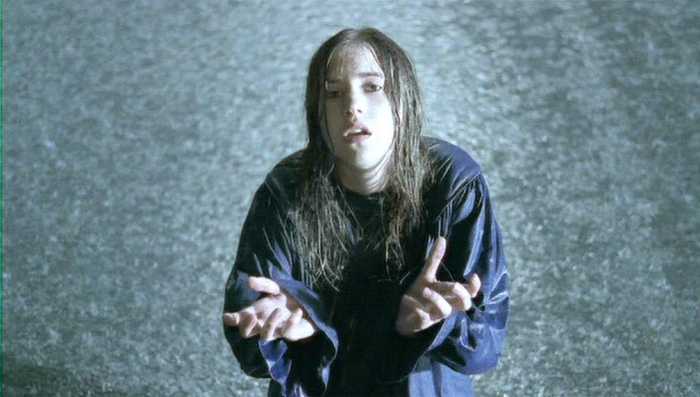
In the original episode, “All Souls”, Scully is helping Father McCue with a case involving Dara Kernoff, a paraplegic girl. 45 Throughout the episode, Scully experiences visions of her daughter, Emily, who she lost in season 5. “All Souls” not only explores Scully’s religious beliefs, but also her battle with grief and the loss of her daughter. The episode includes her Confession to an unnamed Priest, where she admits: “An innocent girl is dead because of me. I could’ve saved her life, but I let her die.” 46 In this context, Scully is referring to Roberta, but metaphorically she is speaking about Emily. She is clearly filled with a grief she struggles to process, which could also stem from losing William. However this line from 1998 Scully is a stark contrast to the 2016 Scully audiences see in “My Struggle VI”.
Then, in the episode “Redux II”, Scully is hospitalized as her cancer progresses, and she is forced to face mortality, her fear of death, and her doubts concerning her faith. 47 When her mother brings in Father McCue to minister to her, Dana tells Mrs. Scully: “I’ve come so far in my life on simple faith, and now when I need it the most I just push it away. I mean, why … I will subject myself to these crazy treatments, and I keep telling myself that I’m doing everything I can, but it’s a lie!” 48 Not only does this showcase her wavering faith, this scene clearly highlights Scully’s fear of death.

A significant event that takes place in the episode “My Struggle VI” is when Scully and Mulder learn that Mulder is not William’s biological father, the Cigarette Smoking Man is. 49 Mulder struggles to accept this revelation. Yet at the end of the episode, Scully tells him: “William was an experiment, Mulder. He was an idea. Born in a laboratory. I carried him, I bore him, but I was never a mother to him, I wasn’t.” 50 Until this moment Scully had been grappling with both William and Emily, but this line seems to prove to audiences that she has come to terms with her losses and is choosing to make peace with herself. This evolution of her spirituality, and the more open acceptance towards the paranormal makes her a stronger partner for Mulder, but it creates a cognitive dissonance within her character as she struggles with who she was raised to be, and the woman she has become. 1993 Scully is a victim, but 2016 Scully is a rape and abuse survivor. She has come to terms with what happened to her, and she has confronted her demons.
Other Cases of Sexism throughout the Show
With the information already provided, it’s safe to claim that The X-Files consists of a repeating pattern of violence against female characters. In her article, “Scully, the Victim The Legacy of Gendered Violence on The X-Files”, Sadie Graham paints a controversial picture of Scully’s character, and the rest of the female cast on The X-Files, saying:
At its core, The X-Files has always been about structural violence, trauma, and violence against women… In The X-Files, an alien-government consortium is responsible for abducting an untold number of people, but the show particularly focuses on women who have been abducted… The X-Files has always explored the invasion of women’s bodies. 51
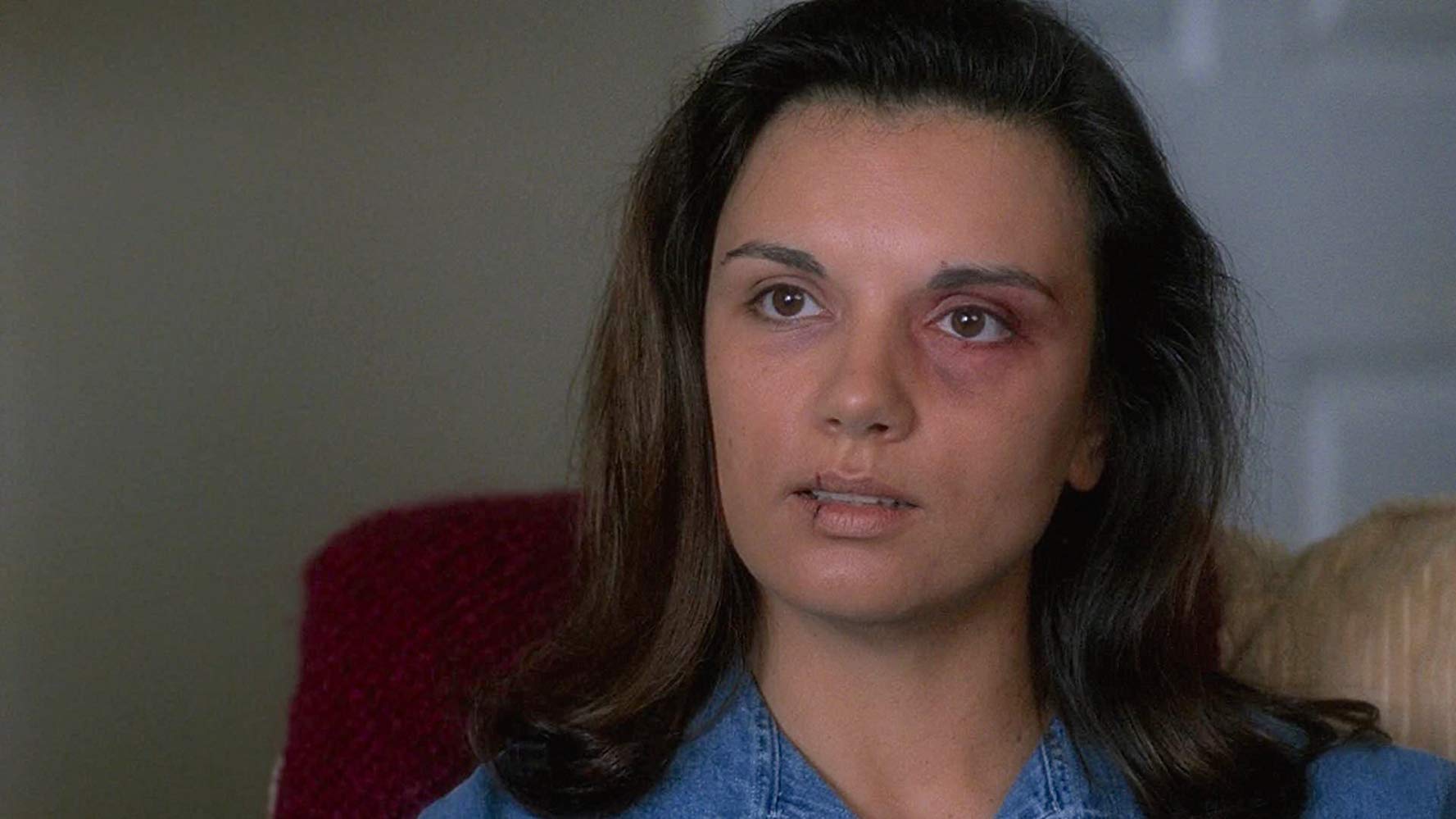
This bodily invasion is perverted and unnecessary, but seems to be a main focal point for a majority of the episodes. A good example of this, other than Scully’s abduction, can be found in the 11th episode of season 2 titled “Excelsis Dei” (1994). This episode explores a supposed haunted elderly care home. It opens with a nurse named Michelle Charters (Teryl Rothery) tending to 74-year-old patient, Hal Arden (David Fresco), who sexually harasses her. It then follows her as she becomes locked in an empty room and violently abused by an invisible entity. She later claims she was raped, displaying the wounds to supposedly prove so, but lacking DNA as substantial evidence. 52
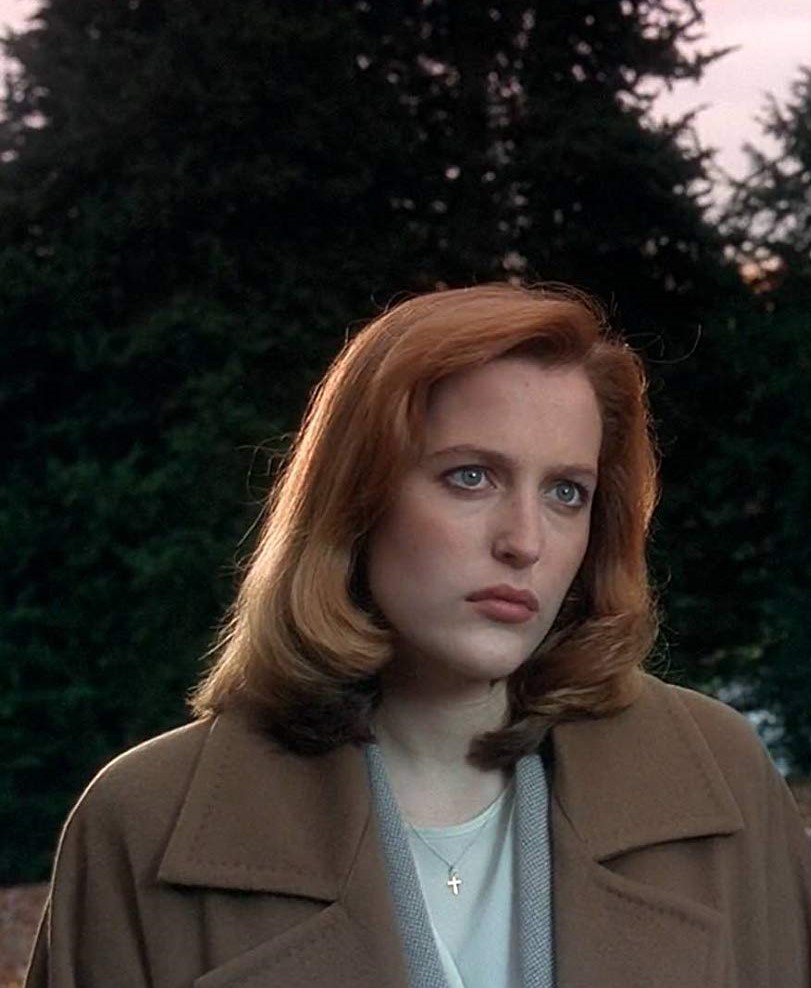
Scully is the one interested in the case, and throughout the episode her investigation is continually impeded by the male characters. Hal, when accused of the harassment, tells Mulder and Scully: “It was harmless, for crying out loud. Ever since this *sex harassment* fad, men can’t say what’s on their minds.” 53 Even Mulder, who typically would be the first to assume poltergeist, believes Charters is staging the crime, telling Scully: “I think Michelle Charters concocted this story to get out of a job she hates.” 54 It’s only because of Scully’s insistence to do so that they further the investigation, but the case shifts its focus from Carters’ rape to the elderly care’s mysterious medical treatment, as if trying to avoid confronting the true crime of violating another female character’s body. The episode’s open-ended conclusion is hardly satisfactory, and leaves viewers questioning whether or not Charters received justice for the crimes against her.
Dana Scully and Michelle Charters are only two of a long list of female victims featured in The X-Files. Further examples include Detective B. J. Morrow, who was psychologically tortured, and Linda Thibedeaux, who was raped, both by the same man (season 2 episode 12 “Aubrey”, 1995) 55. Amanda Nelligan who was raped by a male shapeshifter (season 4 episode 20 “Small Potatoes”, 1997) 56. Shaineh Berkowitz who was mysteriously impregnated (season 5 episode 5 “The Post-Modern Prometheus”, 1997) 57. Countless other women, including Lottie Holloway, Betsy Hagopian, and Penny Northern, who were members of MUFON, were experimented on by the Syndicate (season 3 episode 9 “Nisei”, 1995) 58. These are only a few examples of the many female characters, some of whom did not even receive names, The X-Files has victimized through violence and patriarchal oppression.
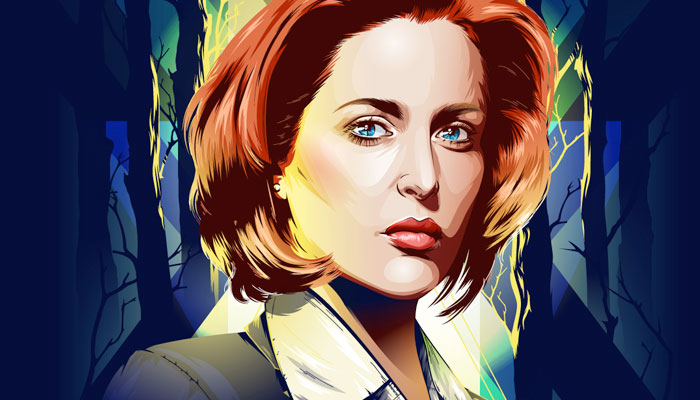
Agent Dana Scully is not only an inspiring female character but also an envoy for both third and fourth wave feminism. She regularly challenges misogynistic stereotypes, and provided female STEM representation on T.V. in a time when such representation was unheard of. Her existence is paradoxical as she suffers the same sexism and oppression as any other woman in the 1990s. Even in the 2016 reboot she is portrayed as a victim of rape and a product of her circumstances, effectively removing her personhood and agency as a result of her abduction. While her rape acts as a catalyst for her character arc, viewers can see her come to peace with her grief over Emily and William, as well as grapple with her skepticism for both the paranormal and her faith in God. However, she is not in control of her narrative; she is a passive character responding to the violence and personal attacks from outside entities, such as The Cigarette Smoking Man. This directly threatens her personhood, agency, and bodily autonomy, violating her consent. Although a harrowing character who bravely led young girls and women from the third wave of feminism into the fourth wave, she is also a victim of crimes for which the male characters, and subsequently the male writers, apparently will not be held accountable for.
Works Cited
- IMDb is the source of images, unless stated otherwise. ↩
- Knowles, Claire Elizabeth. “A Woman’s Place Is in the Morgue: Understanding Scully in the Context of 1990s Feminism.” Vol 21, No 5 (2018). A Journal of Media and Culture. Accessed 30 Sept. 2019. http://journal.media-culture.org.au/index.php/mcjournal/article/view/1465 ↩
- “Dana Scully.” n.d. The X-Files Wiki. Accessed 30 Sept. 2019. https://x-files.fandom.com/wiki/Dana_Scully ↩
- Steinke, Jocelyn, and Paola Maria Paniagua Tavarez. “Cultural Representations of Gender and STEM: Portrayals of Female STEM Characters in Popular Films 2002–2014.” 2017. International Journal of Gender, Science, and Technology. Vol.9, No.3. http://genderandset.open.ac.uk/index.php/genderandset/article/view/514 ↩
- Steinke, Jocelyn, and Paola Maria Paniagua Tavarez. “Cultural Representations of Gender and STEM: Portrayals of Female STEM Characters in Popular Films 2002–2014.” 2017. International Journal of Gender, Science, and Technology. Vol.9, No.3. http://genderandset.open.ac.uk/index.php/genderandset/article/view/514 ↩
- Rampton, Martha. “Four Waves of Feminism.” 2008. Pacific University of Oregon. Accessed 30 Sept. 2019. https://www.pacificu.edu/about/media/four-waves-feminism ↩
- “19th Amendment to the U.S. Constitution: Women’s Right to Vote (1920).” n.d. Our Documents. Accessed 31 Jan. 2020. https://www.ourdocuments.gov/doc.php?flash=false&doc=63#top ↩
- Abrahams, Jessica. “Everything you wanted to know about fourth wave feminism—but were afraid to ask.” 14 Aug. 2017. Prospect Magazine. Accessed 31 Jan. 2020. https://www.prospectmagazine.co.uk/magazine/everything-wanted-know-fourth-wave-feminism ↩
- Rampton, Martha. “Four Waves of Feminism.” 2008. Pacific University of Oregon. Accessed 30 Sept. 2019. https://www.pacificu.edu/about/media/four-waves-feminism ↩
- “What was the Second Wave Feminist Movement?” 28 Jan. 2019. DailyHistory.Org. Accessed 2 Feb. 2020. https://dailyhistory.org/What_was_the_Second_Wave_Feminist_Movement%3F ↩
- “What was the Second Wave Feminist Movement?” 28 Jan. 2019. DailyHistory.Org. Accessed 2 Feb. 2020. https://dailyhistory.org/What_was_the_Second_Wave_Feminist_Movement%3F ↩
- Rampton, Martha. “Four Waves of Feminism. 2008. Pacific University of Oregon. Accessed 30 Sept. 2019. https://www.pacificu.edu/about/media/four-waves-feminism ↩
- “The Third Wave of Feminism.” n.d. Britannica. Accessed 2 Feb. 2020. https://www.britannica.com/topic/feminism/The-third-wave-of-feminism ↩
- “The Third Wave of Feminism.” n.d. Britannica. Accessed 4 Oct. 2019. https://www.britannica.com/topic/feminism/The-third-wave-of-feminism ↩
- Knowles, Claire Elizabeth. “A Woman’s Place Is in the Morgue: Understanding Scully in the Context of 1990s Feminism.” (2018). A Journal of Media and Culture. Vol 21, No 5. Accessed 30 Sept. 2019. http://journal.media-culture.org.au/index.php/mcjournal/article/view/1465 ↩
- Knowles, Claire Elizabeth. “A Woman’s Place Is in the Morgue: Understanding Scully in the Context of 1990s Feminism.” (2018). A Journal of Media and Culture. Vol 21, No 5. Accessed 30 Sept. 2019. http://journal.media-culture.org.au/index.php/mcjournal/article/view/1465 ↩
- Knowles, Claire Elizabeth. “A Woman’s Place Is in the Morgue: Understanding Scully in the Context of 1990s Feminism.” (2018). A Journal of Media and Culture. Vol 21, No 5. Accessed 30 Sept. 2019. http://journal.media-culture.org.au/index.php/mcjournal/article/view/1465 ↩
- “The Fourth Wave Of Feminism.” n.d. Britannica. Accessed 31 Jan. 2020. https://www.britannica.com/topic/feminism/The-fourth-wave-of-feminism ↩
- Abrahams, Jessica. “Everything you wanted to know about fourth wave feminism—but were afraid to ask.” 14 Aug. 2017. Prospect Magazine. Accessed 31 Jan. 2020. https://www.prospectmagazine.co.uk/magazine/everything-wanted-know-fourth-wave-feminism ↩
- Abrahams, Jessica. “Everything you wanted to know about fourth wave feminism—but were afraid to ask.” 14 Aug. 2017. Prospect Magazine. Accessed 31 Jan. 2020. https://www.prospectmagazine.co.uk/magazine/everything-wanted-know-fourth-wave-feminism ↩
- Leon, Melissa. “Gillian Anderson: I Was Offered Half Duchovny’s Pay for ‘The X-Files’ Revival.” 12 Jul. 2017. Daily Beast. Accessed 2 Feb. 2020. https://www.thedailybeast.com/gillian-anderson-i-was-offered-half-duchovnys-pay-for-the-x-files-revival ↩
- Leon, Melissa. “Gillian Anderson: I Was Offered Half Duchovny’s Pay for ‘The X-Files’ Revival.” 12 Jul. 2017. Daily Beast. Accessed 2 Feb. 2020. https://www.thedailybeast.com/gillian-anderson-i-was-offered-half-duchovnys-pay-for-the-x-files-revival ↩
- “Feminist Theories Of Agency.” n.d. Encyclopedia Britannica. Accessed 6 Oct. 2019. https://www.britannica.com/topic/philosophical-feminism/Feminist-theories-of-agency ↩
- “Personhood.” 11 Sept. 2019. Enclyclopedia.com. Oxford University Press. Accessed 6 Oct. 2019. https://www.encyclopedia.com/medicine/encyclopedias-almanacs-transcripts-and-maps/personhood ↩
- Anderson, Dianne E. “When Personhood is Not Enough: The Context of Feminism.” n.d. DIANNA E. ANDERSON. Accessed 6 Oct. 2019. http://diannaeanderson.net/blog/2014/4/when-personhood-is-not-enough-the-context-of-feminism ↩
- “Feminism Reimagined: The Third Wave.” n.d. Encyclopedia Britannica. Accessed 6 Oct. 2019. https://www.britannica.com/topic/Feminism-Reimagined-The-Third-Wave-1376924 ↩
- “Duane Barry.” The X-Files, written and directed by Chris Carter, Fox Network, 1994. ↩
- “Duane Barry.” The X-Files, written and directed by Chris Carter, Fox Network, 1994. ↩
- “Dana Scully’s abduction.” n.d. The X-Files Wiki. Accessed 7 Oct. 2019. https://x-files.fandom.com/wiki/Dana_Scully%27s_abduction ↩
- Pedroja, Cammy. “The untold truth of Gillian Anderson.” n.d. The List. Accessed 14 Oct. 2019. https://www.thelist.com/51696/untold-truth-gillian-anderson/ ↩
- Pedroja, Cammy. “The untold truth of Gillian Anderson.” n.d. The List. Accessed 14 Oct. 2019. https://www.thelist.com/51696/untold-truth-gillian-anderson/ ↩
- Pedroja, Cammy. “The untold truth of Gillian Anderson.” n.d. The List. Accessed 14 Oct. 2019. https://www.thelist.com/51696/untold-truth-gillian-anderson/ ↩
- “Duane Barry.” The X-Files, written and directed by Chris Carter, Fox Network, 1994. ↩
- “Ascension.” The X-Files, written by Paul Brown and directed by Michael Lange, Fox Network, 1994. ↩
- “One Breath.” The X-Files, written by Glen Morgan and James Wong, directed by R. W. Goodwin, Fox Network, 1994. ↩
- Kang, Inkoo. “The Betrayal of Dana Scully: “The X-Files” Has Been Terrible to Its Lead for a Generation.” 14 Mar. 2018. The Village Voice. Accessed 31 Jan. 2020. https://www.villagevoice.com/2018/03/14/the-betrayal-of-dana-scully-the-x-files-has-been-terrible-to-its-lead-for-a-generation/ ↩
- “All Things.” The X-Files, written and directed by Gillian Anderson, Fox Network, 2000. ↩
- “Memento Mori.” The X-Files, written by Chris Carter, Vince Gilligan, John Shiban, and Frank Spotnitz, and directed by Rob Bowman, Fox Network, 1997. ↩
- “Emily.” The X-Files, written by Vince Gilligan, John Shiban, and Frank Spotnitz and directed by Kim Manners, Fox Network, 1997. ↩
- “William.” The X-Files, story by David Duchovny, Frank Spotnitz, and Chris Carter, teleplay by Chris Carter, directed by David Duchovny, Fox Network, 2002. ↩
- “Per Manum.” The X-Files, written by Chris Carter and Frank Spotnitz and directed by Kim Manners, Fox Network, 2001. ↩
- “My Struggle.” The X-Files, written and directed by Chris Carter, Fox Network, 2016. ↩
- “My Struggle III.” The X-Files, written and directed by Chris Carter, Fox Network, 2018. ↩
- Still, Jennifer. “Dear Chris Carter: Having Scully Be “Impregnated By Science” Is Equivalent To Her Being Raped.” 4 Jan. 2018. Decider. Accessed 6 Oct. 2019. https://decider.com/2018/01/04/scully-raped-x-files/ ↩
- “All Souls.” The X-Files, written by Bill Brown and Dan Angel, and directed by Allen Coulter, Fox Network, 1998. ↩
- “All Souls.” The X-Files, written by Bill Brown and Dan Angel, and directed by Allen Coulter, Fox Network, 1998. ↩
- “Redux II.” The X-Files. Written by Chris Carter, and directed by Kim Manners, Fox Network, 1997. ↩
- “Redux II.” The X-Files. Written by Chris Carter, and directed by Kim Manners, Fox Network, 1997. ↩
- “My Struggle IV.” The X-Files, written and directed by Chris Carter, Fox Network, 2018. ↩
- “My Struggle IV.” The X-Files, written and directed by Chris Carter, Fox Network, 2018. ↩
- Graham, Sadie. “Scully, the Victim The Legacy of Gendered Violence on The X-Files.” 29 Jan. 2018. BitchMedia. Accessed 30 Sept. 2019.https://www.bitchmedia.org/article/gendered-violence-on-the-x-files ↩
- “Excelsis Dei.” The X-Files, written by Paul Brown and directed by Stephen Surjik, Fox Network, 1994. ↩
- “Excelsis Dei.” The X-Files, written by Paul Brown and directed by Stephen Surjik, Fox Network, 1994. ↩
- “Excelsis Dei.” The X-Files, written by Paul Brown and directed by Stephen Surjik, Fox Network, 1994. ↩
- “Aubrey.” The X-Files, written by Sara Charno and directed by Rob Bowman, Fox Network, 1995. ↩
- “Small Potatoes.” The X-Files, written by Vince Gilligan, directed by Cliff Bole, Fox Network, 1997. ↩
- “The Post-Modern Prometheus.” The X-Files, written and directed by Chris Carter, Fox Network, 1997. ↩
- “Nisei.” The X-Files, written by Chris Carter, Howard Gordon and Frank Spotnitz, and was directed by David Nutter, Fox Network, 1995. ↩
What do you think? Leave a comment.











Looking back on it now, I think Anderson gave the character more depth than the writers really intended. To their credit, the directors gave her room to do it, but the pay discrepancy was and still is a farce. Up until the show started to go south, it was really told through Scully’s eyes — she was the ‘everyman’ character, and Mulder was the weirdo. She could do way better, but they had some weird, codependent, inescapable obsession with each other. I still love it.
Ah… the Scully effect. I had always been interesting in science as a girl, but having Scully was extra encouragement. When someone might make a comment to my 12 year old self about science being more of a by thing, I could imagine how Scully would respond to that.
I can’t understand why people think like this.
My step-daughter was the best in her class (three separate schools) in math and science. I think that kids are capable of anything that they believe they can do. That is why she excelled where she did and why my mom is the most amazing person I have ever met.
I was lucky to see Gillian Anderson on the London stage a few years ago and she was wonderful. She made The X-Files with her nuanced, intelligent performance as Scully, and her theatre and film work since then has been exemplary. A terrific actress with a very wide range, and always comes across as a thoroughly nice, well-grounded and lovely person too.
I always loved the X-Files, with the dishy David and lovely Gillian.
She’s a fantastic actor. Loved the X-files first time around but tried rewatching it recently and found it a bit dated.
I miss decent scifi. At the time, we had X-files, DS9 and Babylon 5 all hitting it out the park, as well as plenty of reasonably good TV like Sliders and Space: Above and Beyond.
Now…….meh. BSG was good, but even that was, what, yeaars ago.
I’ve been baffled for a long time now by how little CC understands the success and appeal of his own show. At least in the 90s it managed to go with the zeitgeist but the writing has lost that as well now. Oh dear…
Good post. The fact of the matter is that without Scully the show would be a totally different show, probably with a male protagonist having flings with various semi-muted women who spend most of the screen time naked.
Having been a woman of the second wave feminist movement, I look back with some chagrin at the sexual freedom aspect of the feminist movement. I wanted to be able to have sex like a man, without any regrets, without feelings of guilt, without emotional connections. It just didn’t work for me. At least I was able to work that out without any greatly appalling repercussions. Now it has all become even more complicated for women, I think. Young women have all these distracting sexual messages coming at them about looking sexually exciting. Those are my thoughts…
Before I was saved, I also wanted to have fun with men, though probably not as extreme as you describe. The thing we should be asking ourselves, though, is why is it really desirable to have emotionless, connection-less sex like some men do? Do the men that have sex like that really benefit from it in the end? I actually think it’s rather dehumanizing. I did do some deliverance of sexual immorality spirits, and my desires have changed. It’s shocking how, sometimes you think you really want something, and then you found out this lust wasn’t even coming entirely from you.
It is a bit weird when you think about it. Scully was a skeptical Catholic while Mulder was an atheist believer.
It was a great show.
For me, X-Files was at its considerable best when it got away from that aliens / government conspiracy baloney and did either weird tales (sort of Twilight Zone, with a modern twist), or light, romantic-tinged screwball comedy, in the style of the early Avengers.
As someone who’s a little too young to remember The X Files at the peak of its popularity but has just recently been catching up on it, I fully agree. Perhaps it was more interesting at the time but I’ve found the alien conspiracy stuff bafflingly silly, whereas the stand-alone episodes are often very thoughtful and gripping.
I fell for X-Files right from the first season. But the clinching moment was during my month-long stay in Hawai’i. I had only one evening that I sat down to watch TV, and it was a Friday, so I turned on X-Files and got “Jose Chung’s ‘From Outer Space’”, which may be the finest hour of TV that I have ever seen.
I will watch the latest reboot of the series if for nothing more than getting to see the original opening credits again.
I appreciate the normalizing of women in STEM fields. And when the character has the serious chops behind the lab coat or whatever else they are rocking.
My one fav is Abby Scuito on NCIS. She doesn’t just magically show up with this weeks “Ta-Da, I solved it.” Episodes involve her, the process, her thinking, talking things through with others, figuring out the solution.
Truthfully all the characters get that chance all the time. But they never shy away from the women doing their part to the fullest.
Not defending the storyline, but I do question whether “rape” is really the right term for non-consensual artificial insemination. Any medical procedure performed without the informed consent of the patient is clearly a major violation, and artificial insemination carries with it certain obvious sexual…associations…., but it is still meaningfully different than a sexual act. Just because an assault involves the victim’s genitals or reproductive organs doesn’t make it sexual assault.
Yes, it’s rape.
Think about this way – if your mother, sister, wife, daughter or even you was impregnated, without consent, what would you call it?
According to the federal definition of rape, it is rape.
The entire PLOT of the X-Files revolves around Scully being used as a vessel for an alien baby.
I don’t think they’ve ever had female writers. 🙁
Going through the list of of new episodes they had like 6 writers – one of them Gillian Anderson who was also the only female director they ever had (unless I overlooked someone*). Most were only writing one or two episodes so the total number of female written episodes in a show with over 200 episodes in total is LESS THAN 10!
*ETA: They also had Michelle MacLaren direct one episode so… yay, 2 episodes directed by women! Wow, such equality!! /s
Chris is very loyal to the original staff as much of it has returned. Darin, Glenn and James wrote the handful of quality episodes from the event series.
The X-Files is my favorite show of all time, but I didn’t even finish the new episodes they put out, mainly because they decided to unceremoniously nix the alien conspiracy completely – thus trashing the entire main plot / mytharc and all the sacrifice and mental (because confusing) and emotional investment that went with it – just to return to a storyline they’ve already done. It’s like if Fringe decided all that stuff with the other dimension and mysterious Observers was all a sensory-deprivation dream…after they’ve saved the world.
The problem is that Scully, after season 6, was not allowed to grow. The franchise kept her frozen in place. She was allowed to briefly be awesome in season 8, but that season set up a new type of frozen Scully: Scully the dour and depressed mother, forever obsessed with father and son. Gillian Anderson is such a funny, lively actress and person, that this robbed Scully of other nice dimensions; witness how she comes alive during comedy episodes. But the franchise’s format doesn’t let her break from her “role” (sad mom and skeptic) often.
To Carter’s credit, from the second film onwards he increasingly wrote Scully as an independent chick who is tired of sh*t (let’s be honest; Scully is a rape victim and has had to endure countless other incredible traumas) and tried her best to keep Mulder at arm’s length. But with the franchise’s mythology becoming so convoluted, a conventional Mulder-and-Scully living-happily-together boyfriend-girlfriend romance might have played better. It would have allowed Scully to have some fun.
The modern trend of kick-ass alpha women is dull. With her ordinariness, weaknesses, reset-buttons and with her spiritual hangups, Scully’s much more interesting. Give me the Scully of Ice and Detour over Wonderwoman any day.
It’s sad that Gillian is leaving the franchise. She deserved a few well written episodes which save the Scully character. Go back and watch Season 1: that Scully had agency, was funny, skeptical in a believable way, vulnerable and kicked so much ass. As good as season 11 has been, its version of Scully is sadly still a shrill, dour thing obsessed with her ovaries. The fans want a happy Scully.
Well said. I would take the Scully from the pilot episode (medical doctor, FBI agent and professional, competent foil to Mulder’s weirdness) any day over what we’ve gotten with season ten and eleven.
I don’t really understand the complaints about Scully being abducted, and all the experimentation done to her. It really isn’t gratuitous. That’s part of “real life” UFO lore (even if it was later revealed that in her case it was really human scientists). According to people that believe they were abducted by aliens, the aliens would poke around (insert anal probe joke here), do weird medical procedures, remove fetuses from pregnant women, and the sort.
Maybe the show needed to have more male abductees to balance things out. There was Duane Barry. Oh, and Mulder was abducted too, and tortured, but that was so over-the-top-silly it’s not really worth mentioning.
Now, retconning En Ami, to say that CSM impregnated Scully with science is just stupid. It was stupid when it was first suggested during the hiatus between season 7 and 8, and it’s stupid today. It’s even worse when I can’t imagine My Struggle IV not ending with it confirming that Mulder is William’s real father. So, the “big” twist: CSM Is The Father! will only last for less than the duration of a mythology episode.
The complaint is not that her abduction itself was anti-feminist, but that the way the character was allowed to deal with the aftermath was superficial compared to what that would look like in reality.
Well regarding the male abductees. There was also Max Fenig, who was a multiple abductee. And Billy Miles. Fenig was killed and Miles was almost killed and turned into a supersoldier. (The same happened to guys like Knowle Rohrer, who we know as villains, but they are victims nontheless). Mulder was even buried alive. There were also plenty of men experimented upon by Syndicate scientists. Like Dr Secare in Erlenmeyer Flask.
And we even had female doctors medically raping women. Remember Sally Kendrick?
So I don’t quite get the outrage over the CSM “scientifically” impregnating Scully – quite likely with Mulder’s sperm, what she wanted to do herself earlier, but failed. People make it sound like CC suddenly did something to Scully that turned her character upside down. Given Scully wanted a kid with Mulder, the removal of her ova was a far worse violation.
I agree with much of this article. It is no wonder why Gillian Anderson wants to escape this train wreck.
We women still need to look up to Dana Scully, if for no other reason than that the world she occupied in the 90’s still exists.
I just started rewatching The X-Files recently after a decade or so, so timing of this article is almost paranormal. I mean, I was just thinking about how differently would The X-Files have to look now and how much did the world change since the 90’s.
The X-Files is beginning to feel traumatizing…
i’d like to add that it’s not a healthy male model either, the tortured loner dude who can’t allow himself to be vulnerable enough to have a healthy, emotionally supportive partner because it somehow distracts him from his genius or his quest. it’s 2020 and we need to start writing emotionally mature fictional characters of both genders to model what that looks like for new generations of real humans, so maybe we can reverse this trash fire of a world we’ve built on the unquestionable sacredness of shitty old tropes.
You are so right. Mulder’s grown a lot since the beginning, but he could def be more open to Scully (or if he is, we need to see him doing that).
I’m like the biggest X-Files fan I know. I stopped watching after episode 2 of the last new season (watched the two-parter season opening at a fancy watch party), mainly because a. the mytharc was completely dismantled, and b. they already did that exact storyline seasons ago. There were better ways to scrap the alien invasion thing without retconning the entire show and making fans feel like they got invested in a giant Gotcha! dream sequence. It’s…so disappointing. Just reminds me to never stop growing.
I never thought I would say this, but… I’m giving up on X-Files.
Yeah, we are done, X-Files. I loved you. I’m always gonna love Mulder and Scully. I’ll treasure the good memories I have from you. Goodbye.
I just finished watching this series as an adult and Scully has been an amazing inspiration for me in a lot of ways. Ultimately for me the series is an in-depth analysis of co-dependency. Their relationship was certainly co-dependent, and Mulder’s obsession with his work was also co-dependent. I thought the seasons where Mulder was gone were most interesting. It was fascinating to see what a strong but co-dependent woman does when pressured to make her own decisions for the first time.
I’ve always thought Scully was far and away the only female protagonist I could ever identify with. She was such an incredibly unusual character on television in the 90’s and despite everything that came in her wake( and because of her) no character, for me anyway, has ever come close to being as fully realized as she. I’ve never believed in any one character on TV as much as I believed in her and truth be told I miss her.
I always felt a little twinge about the Scully/Mulder relationship. I did want them to be together because obviously their love was pure and holy but Mulder (or really the X-files) did ruin her life, dead sister, cancer, one dead half alien daughter, son up for adoption, all personal safety and finally her freedom (I do wonder how they are going to not be fugitives all of a sudden). Like a lot of other female sci-fi leads she changed her whole life to support her man. That always bugged me.
I was excited to see a posting on here on The Artifice about Dana Scully. Great article!
The impending movie stirred up what was thought to be a long dead interest in the X-files and I’ve recently come into a new realization. I was obsessed with X-files as a child. I wanted to be Scully. Now, watching X-files through the objective eyes of a twenty-something, I began to question whether or not Chris Carter understood women. Yes, Scully was smart. Yes, Scully was tough. However, the show’s creators made it seem like to be both those things you could not have a sense of humor or sexual drive. For the lack of a better word, she was a very one-dimensional woman (whereas Mulder was emotional and witty). Am I wrong? Honestly, I feel like the first episode that showed Scully as a multi-layered character was the episode Gillian Anderson wrote and directed (“All Things” was one of the best episodes of the show!) It was only towards the end of the series that her character became warmer and more relatable (which I feel was because of Anderson’s desire to make her character more dimensional). Also, though she was super independent, she fiercly stuck by a weirdo that always abandoned her. Now I want Mulder and Scully to live happlier ever after as well, but how can I respect a woman who puts up with that guy’s constant crap!? Because of him she got cancer, her sister got killed, she had 2 kids (one that died and the other that she had to give up), and had to deal with a plethora of aliens, liver-eaters, and serial killers that tried to kill her. Her devotion seemed to outweigh what he did for her.
Ok, I gotta stop…this is breaking my heart realizing this…:P
It absolutely boggles my mind that people aren’t giving her better things to do because she is an incredible screen presence. A once in a generation talent. And she’s spent most of her career playing second fiddle to a plank of wood. It’s a goddamn tragedy is what it is.
hank you for writing about my favorite character. I benefitted from my own “Scully Effect”. Though I wanted to be a scientist before the X-Files, Scully helped shape my idea of what a woman scientist looked like. She was leagues beyond what I had grown up with before, like the (to me) whiny and ineffective Beverly Crusher from Star Trek: TNG.
Being a woman in STEM is arguably pretty weird. Most all the fields I’ve worked in (physics, biology, and technology) have been male-dominated where I’ve often been the only woman on the team. It’s a delicate balancing act to know when you’re being “pushy enough” to get your ideas across or being “too bossy”. These are terms my male team members never hear to describe them, but women get them all the time. I used to obsess over this when I was earlier on in my career. Not having any older, or even other, female scientists to look up to meant I returned to the formative idea of what I admired most in a woman scientist – which was Scully. Arguably she could be stubborn, but when she was confident about her ideas she didn’t back down. That’s one of the most important qualities I think a woman in STEM can have – if you feel strongly about something, then push for it. Don’t be wishy-washy because that’ll taint your ability to be taken seriously for the rest of the time you’re with that team. If it turns out to be wrong, you can apologize and learn from it but you have to be your own champion and not back down till you see the result.
Finally, the other quality I pulled from Scully’s character was to attribute your own success to you. There have been many studies (too many to cite, search for “impostor phenomenon”) indicating that women often attribute their good performance to others or luck, (e.g., “I had a lot of help” or “I got lucky this time”) whereas men attribute success to themselves (e.g., “I’m good at what I do”). Scully attributes it to herself. Her character has the training, the experience, and the self-worth to know that she can do the job. Credit to where credit is due – often that’s the team, but also to the individuals making up the team and that includes you and all the things that make you good at your job.
tl;dr – there aren’t a lot of women role models in STEM and I took many of Scully’s qualities of being confident and self-actualized to make me better in my own field as a scientist
The X-Files was a great program but maybe a bit realistic for some. I had to explain to my friend that it was in fact fictional. He seemed to be under the impression that because it used titles of time and place that it actually happened.
It’s interesting to see a strong, smart female character with weakness and vulnerability.
This is such a good account of the conflict between being a kid who grew up with 90s romanticism and being an adult who’s psychologically astute.
The show was a huge part of my childhood/early teens. I can watch an episode and often remember what I was doing when it originally aired. I used to watch it with my cousin who now attributes her decision to become a doctor to Dana Scully.
One thing that occurs to me rewatching the show as a 30-something is that Mulder is often clueless and emotionally crippled. Very different from the handsome capable agent of my childhood. He’d be lost without Scully.
Same! I’ve been rewatching it and the number of times he talks over Scully and inserts completely batshit opinions drives me nuts! He’s wrong half the time too but never admits to it.
I love the X-Files, but I hate that Scully is constantly made the “girl in the tower”.
As a woman, I understand how that’s frustrating. But in the 90s, yeah, it was pretty common.
And, to be honest, I like it.
I love that she appears so strong and intelligent, but everyone has weaknesses, and those moments where Mulder has to come to her rescue sort of highlight how strong their friendship/relationship is.
If she were just a strong character who could hold her own, through every situation thrown at her, who didn’t ever need assistance, then her character would be sort of one-dimensional and boring.
I don’t think Scully was ever written as some dainty woman that needs protecting. She never went out without a fight. And she’s also only, what?, 5’3″ or something? Tiny! A gun and some fancy fighting can only do so much against a 6′ man determined to do harm when someone is that small. She’s not frail by any means, but everyone has their limits.
As the series goes on, there’s more of a balance in who comes to rescue whom between Mulder and Scully.
I’ve met Gillian Anderson and she is a lovely. Very polite, thoughtful and grounded. She’s very kind, too. I loved her as Scully and she brings a certain presence and quality to the screen.
An interesting essay that provides insight into more than just one female character on TV. Well written.
Interesting article with good ideas.
I named my daughter Dana after Scully’s character. It’s a deeply personal show for me and I’m sure that sounds strange but it was a light in a very dark time in my life.
Very personal for me as well. Definitely not strange – we are kindred spirits! That show got me through high school in all the ways high school can be awful, and it is even helping me now – I love it so much despite my criticism of Carter.
Scully is a great character. i wish Gillian’s wishes had been given more respect. I’ll always appreciate how well-defined and interesting she was as a character.
This shows obsession with her fertility would simply be tiresome if it wasn’t also gross.
Not meaning to sound crass, but the empowerment that women seek is both enhanced and hindered by their biology. Think about it; what makes woman the most unique creature of all is that she can create and carry life within her own body – is that empowerment or what? The fact that men seek to exploit that power rather than revere it is a sad but inevitable fact, but it still gives a woman a place in history and on the TV screen that men can never achieve. Scully has always been my favorite of the pair, and I’m sorry for any tragedy she may soon experience, but to be the one who gives birth to the savior of humanity has to in some way make up for that, right?
I don’t think Scully would agree (I respectfully don’t, either). Women should not be revered simply because they can have children, they should be revered and respected because they are people and men shouldn’t exploit them because that is wrong to do to another person. Scully wanted to be a mom but I highly, highly doubt that she wanted the Smoking Man to impregnate her with alien DNA to create the first supersoldier baby (which is what he said in Wednesday’s premiere). That’s not a child conceived out of her and Mulder’s love, that is a science experiment she did not agree to. However, William arrived and she loves him and I doubt she’ll stop loving him after finding out what he is because he’s her son. It does not “make up for” what was done to her YET AGAIN as a pawn in the CSM’s fucked up plan. I am still holding out for the hope that he’s Mulder’s son also, and whatever the CSM did medically, it simply allowed her to conceive but with some added alien DNA.
Late to the game… but. What. The. Actual. Heck.
I’ve was looking forward to this for maaany years and this is what you do? I’ve talked up this show, recommended it, stood by it. My mother loves this show. I don’t think I’ll tell her it’s back. She doesn’t deserve this. She’s loved it for decades and this is what you give her?
Rubbish and spittle, I’m so done with the Mystical Pregnancy Trope.
The sexism in law enforcement thing happens a few times throughout the series and I think it’s just there to highlight the slowly diminishing patriarchal world that we live in. Scully always ends up just beasting those beliefs to fuk though and Doggett steps in to defend her on one occasion as well.
I’ve recently started rewatching The X-Files and it has totally rekindled my crush on Scully.
I can remember watching the show when I was little and telling my mom I wanted to be an FBI agent/doctor just like Scully.
Scully was a huge relief to me when I was young, because she wasn’t constantly having an emotional crisis, sleeping with an asshole or talking about weddings and babies. She was cool, scientific and self-possessed. It’s still rare to see women characters like that, and I value her so much.
LOVE The X-Files and LOVE Scully. She and Sarah Connor were 2 of my biggest role models as a child, and I’m a (gay) guy who wanted to grow up to be just like them. Gotta love resourceful, intelligent, and badass women who don’t give a shit about the social roles they are expected to perform.
I loved it that Scully never screamed. She may have cried out in shock, but never screamed. Never helpless. When Donnie Faster had her tied up, she never gave up.
I love that Scully stood up for herself and could be pushed to a point where she outright demanded more respect from her partner.
This is a great article. This show has had a massive impact on me and is one of my favourite shows ever.
I’m sad. This whole thing saddens me. I guess I’ll just pretend none of this exists just like that final season of Scrubs that also doesn’t exist.
I recommend watching American Gods and enjoying Gillian Anderson’s brilliant performance in that instead of watching this.
Season 1 of the X-Files gave us the best Scully–the competent challenger and defender of the geeky Mulder. But somewhere in Season 2, C Carter decided Mulder should be an action hero, and that meant Scully should need rescuing… and it went downhill from there. I’m sorry to learn that Carter’s learned little since then.
Loved this article. It brought back so many wonderful memories. Excellent writing!
CC sees himself as Mulder and gets off on the idea of being needed and rescuing his dream woman to make him feel complete.
Very interesting article! I have always seen Scully as a strong feminist character, but I’ve never given many thoughts about some features, arcs, episodes that, as you said, undermine her personhood and agency.
It had me thinking about another female character and how her story arc could be compared to Scully’s: Samantha “Sam” Carter, from Stargate SG-1. The show is more recent (1997-2007) and the story is different from the X-Files, however, both shows are Sci-Fi, and Carter like Scully is a female character working in a male world (the US Air Force), with a STEM background (Carter is a renowned astrophysicist), she can also be described as ‘skeptic’ contrary to other characters such as Doctor Daniel Jackson, an archaeologist, anthropologist and one of her teammates. Plus, SG-1 tackles, though with a very different approach than the X-Files, the themes of aliens, and alien intrusions in one’s body, as the main antagonists of the show are the Goa’uld, a race of alien parasites that infects and completely takes over one’s body. On several occasions, Carter is infected and controlled by some alien entity. (Though she is not the only character to go through such an ordeal, we see other women infected too, but we also see some men, as some of Sam’s teammates temporarily became the hosts of some alien parasites as well).
Anyway, amazing post. Thank you very much!
Interesting article! But I think Agency Scully had still got the point of being a feminist character in the film.
Seriously in-depth article! I’m struck by the line, “By stealing her reproductive organs, the writers harm Scully’s personhood even more so…” That is a powerful statement.
Great Content
Great article! It was interesting to see the different perspectives there are around Scully’s character.
Very thoroughly researched in-depth thought-provoking article. Had a great time reading it. The issues brought out certainly merit more discussion in mainstream media.
Looking back through the entire history of television and movies, one does realise that we still have a long way to go to end the continuous portrayal of female characters as mere plot devices.
Awareness and inclusivity of more female crew is key in this process. It is also worth noting as you mentioned that majority of episodes have been directed by males. When will we see a female director being allotted a 300 million+ dollar budget by studios to achieve her vision? Hopefully, it should happen very soon.
Highly interesting article. I was particularly interested in the juxtaposition of Scully’s skeptical bent being coded as “masculine” while Mulder’s embrace of the supernatural was/is coded as “feminine.” When you brought that up, I immediately realized I never thought of that, but have seen a lot of situations where the less “normalized” trait is coded as feminine. As in, you allegedly meet more skeptics than believers, so… Anyway, what is up with that?
X Files was very sexist and misogynist tv show. Producer Chris Carter may or many not know that he has a serious problem with women. Agent Scully’s body was constantly invaded and violated as where all women in the show. Most men where not and if they where their dignity was kept intact but not so for women.
Episode after episode we see women decapitated, burned, raped and violated while Agent Molder makes jokes and watched porn?
Wonderful article! I love The X-Files and have always looked up to Dana Scully as a feminist icon. Her character led to more women joining STEM, in what is called the “Scully Effect”. I like how you pointed out all the ways in which Scully’s character was subjected to gendered stereotypes and violence. It is important to discuss how a forward-thinking show can also perpetuate harmful things.
I used to watch the X-Files years ago. The thing with the X-Files is, they kept pushing the idea of aliens on their viewers, and in my opinion, they presented aliens as this great mystery that no human on this earth can truly grasp. It seemed like a tantalizing game of “they exist!” but then “do they really?”
However, after I got saved, I came to learn that aliens are actually demons. I recommend watching “Lucifer’s Biggest Lie – ALIENS” on the Youtube channel Chris Lasala. Another decent Youtube video on the subject is “The Biblical Truth About ALIENS (from an Astrophysicist)” on Mike Signorelli’s channel, in which Mike Signorelli interviews astrophysicist Dr. Hugh Ross.